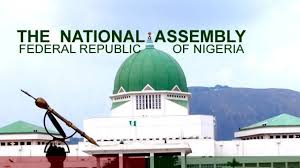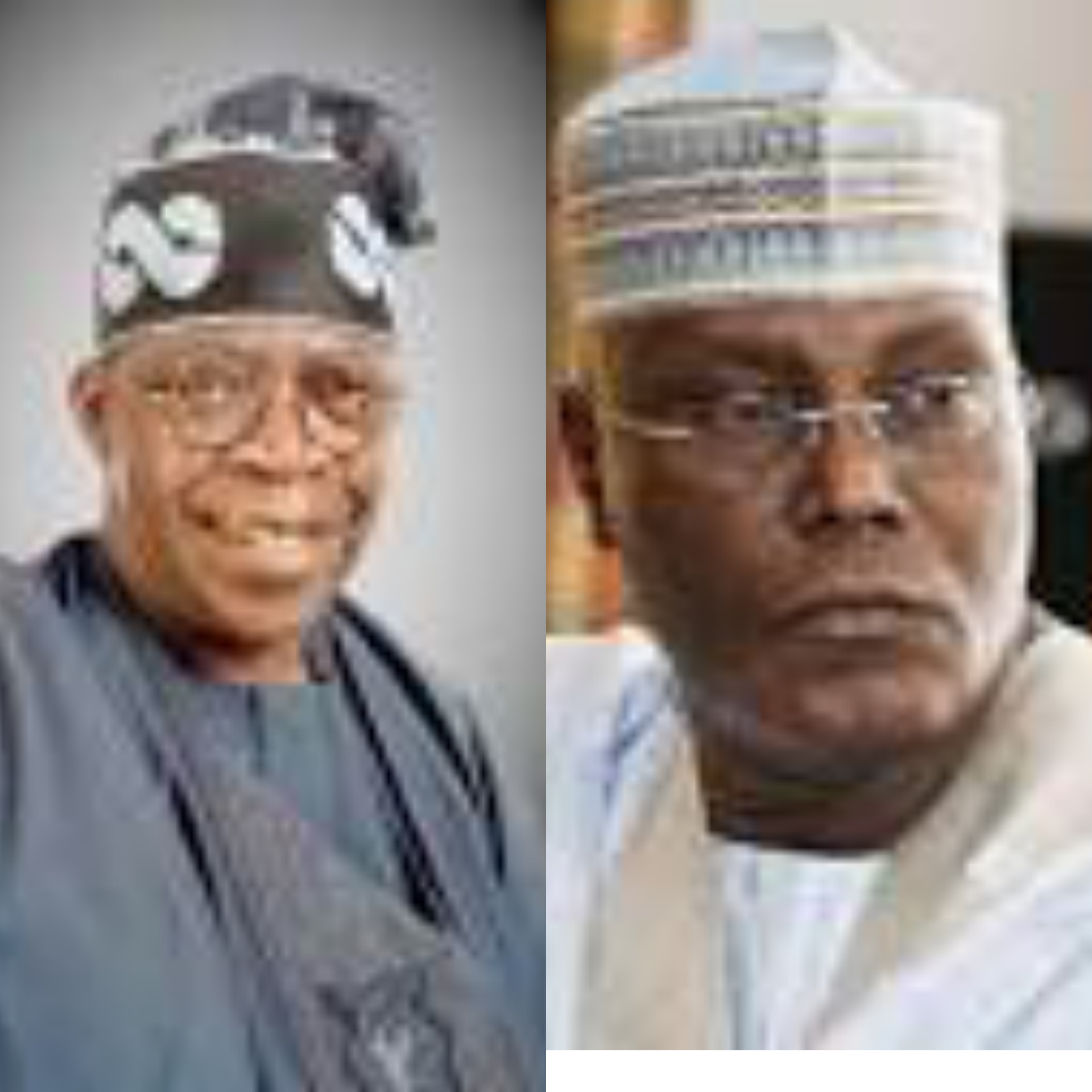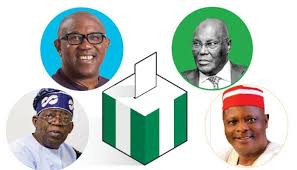By Obute James
Since the return of democracy in 1999 with the Constitution of Federal Republic of Nigeria (1999 as Amended) recognizing Presidential System as system of government in the country, the functions of each arm of government have been generating controversies.
In the presidential system of government like US pattern, there are three arms of government namely, the Legislature, Executive and Judiciary. In line with the nation’s constitution, the Legislature is saddled with the responsibility of lawmaking and oversight; the Executive is responsible for the implementation of the laws while the Judiciary Arm interprets the laws.

In the executive arm, only the president and his vice are elected during the general election.
The Chief Justice of Nigeria, CJN is the head of the judicial arm of the government of Nigeria. The Chief Justice of Nigeria is nominated by the President of the Federal Republic of Nigeria upon recommendation by the National Judicial Council and is subject to confirmation by the National Assembly.
The Nigerian Legislature at the Federal Level is made-up of bicameral, consisting of Senate (109 Senators) and House of Representatives (360 Members).
The President of the Nigerian Senate is the presiding officer of the Senate elected by senators. The Speaker presides over the House of Representatives and elected by Members. All the 109 senators and 360 Members are elected during the general election.
From 1960 to date 14 senators had served as President of Nigerian Senate. They include: Federation- Nnamdi Azikiwe, 1 January 1960 to 1 October 1960 (National Council of Nigeria and the Cameroons); Dennis Osadebay, 1 October 1960 to 1 October 1963 (National Council of Nigeria and the Cameroons); First Republic- Nwafor Orizu 1 October 1963 to 15 January 1966 (National Council of Nigeria and the Cameroons); Second Republic- Joseph Wayas 1 October 1979 to 31 December 1983 (National Party of Nigeria); Interim National Government – Iyorchia Ayu 1992 to November 1993 (Social Democratic Party) and Ameh Ebute, November 1993 to 17 November 1993 (Social Democratic Party).
Forth Republic Evan Enwerem 3 June 1999 to 18 November 1999, People’s Democratic Party, Imo East; Chuba Okadigbo 18 November 1999 to 8 August 2000, People’s Democratic Party, Anambra North; Anyim Pius Anyim, 8 August 2000 to 3 June 2003, People’s Democratic Party, Ebonyi South; Adolphus Wabara, 3 June 2003 to 5 April 2005 People’s Democratic Party, Abia South; Ken Nnamani 5 April 2005 to 5 June 2007, People’s Democratic Party, Enugu East; David Mark, 5 June 2007 to 6 June 2015 People’s Democratic Party, Benue South; Bukola Saraki, 9 June 2015 to 9 June 2019, All Progressives Congress
to 2018, from 2018 (PDP), Kwara Central and Ahmed Ibrahim Lawan 11 June 2019 to 13 June 2023 (Incumbent) All Progressives Congress Yobe North.
Similarly, from 1959 to date 12 indigenous members had presided over the House of Representatives. They include Jaja Wachuku (First indigenous Speaker of the House of Rep. in Nigeria) 1959-1960, NCNC; Ibrahim Jalo Waziri, 1960-1966, NPC; Edwin Ume- Ezeoke, 1979-1983, NPN; Chacha Biam; 1983, NPN; Ghali Umar Na’Abba 2000-2003, PDP; Aminu Bello Masari, 2003-2007, PDP; Patricia Etteh (First female Speaker of the House of Rep. in Nigeria), 2007, PDP; Demeji Bankole 2007-2011, PDP; Aminu Waziri Tambuwal, 2011-2015, PDP; Yakubu Dogara 2015- 2019, APC and Femi Gbajabiamila 2019 to 2023 incumbent, APC.
Ahead of the inauguration of the 10th National Assembly scheduled for June 13, the National Working Committee of the ruling All Progressive Congress, APC in collaboration with President Ahmed Bola Tinubu adopted Senator Godswill Akpabio and Dr. Tajudeen Abbas as preferred candidates for the positions of Senate President and Speaker of the House of Representatives respectively. Senator Jubrin Barau and Hon. Benjamin Kalu were also announced as preferred candidates for the positions of the Deputy Senate President and Deputy Speaker of the House of Representatives.
The zoning and micro-zoning arrangement did not go down well with some aspirants both in the Senate and the House of Representatives.
In the Senate, there is no so much noise with regards to the struggle for the position of the senate president like that of the House of Representatives.
In the House of Representatives where some members-elect have declared their interests to contest for the position of the speaker despite the micro-zoning arrangement of the party, many keep on wondering whether the emergence of the speaker outside those endorsed by the party will lead to any significant development in the 10th National Assembly.
Indeed, what had transpired in the past shows what will play out in the 10th National Assembly in the event the table turns against the decision of Mr President and his party.
Between 1999 to 2007 under the then President Olusegun Obasanjo, six Senators took their turns as Senate President. This development was not unconnected with the struggle for supremacy between the presidency (Executive arm) and the legislature. Impeachments of presiding officers were being influenced from outside the National Assembly.
While there was stability or Executive-Legislature harmony between 2007 to 2015 where the Benue Born politician, Senator David Mark served as Senate President, the situation was not completely the same in the House of Representatives as some lawmakers embarked on what was then known as ‘House Project.’
In 2007, Hon. Aminu Tambuwal in collaboration with some members from opposition parties in the name of ‘House Project’ boycotted the zoning arrangement of the ruling party, PDP and emerged as the Speaker of the House of Representatives.
Between 2007 to 2015, in the Senate, bills and constituency projects, particularly zonal intervention projects were being implemented above 75 per cent by the various MDAs. However, lawmakers in the House of Representatives did not enjoy such opportunity due to constant confrontation between the presidency and the members. Some lawmakers who served in the 7th National Assembly noted that private member bills were not given necessary attention and hardly being signed into law while resolutions arising from motions of the members were not being implemented. The constituency projects or zonal intervention projects tied to the members were also not being implemented beyond 30 per cent except those in the ‘good book’ of the executive arm.
The confrontation or struggle for supremacy between the Executive arm and the lawmakers seemed to have come to climax in the 8th National Assembly where the two presiding officers of the Senate and House of Representatives emerged contrary to the position of the party and the presidency. Senator Bukola Sarki and Yakubu Dogara served as Senate President and Speaker of the House of Representatives respectively. Though there were ‘robust debates’ during plenary sessions. Several member bills were passed but the presidency did not sign most of them into law. Resolutions from the two chambers were not given attention by the Executive arm.
Some lawmakers in the 9th National assembly testified that the executive-legislature harmony resulted into the proper consideration of private member bills and even resolutions from the two chambers. For instance, in the House of Representatives between 2011 to 2015 only about 15 private members bill were assented to by Mr. President. Between 2015 to 2019 only about 38 private member bills were also signed into law by Mr President. However, in the 9th National Assembly, about 150 bills were assented to by Mr President.
A member of the House of Representatives who sponsored the highest bills, incidentally, the preferred candidate of the ruling party and Mr President for the position of the Speaker, in the 10th National Assembly, Dr. Tajudeen Abbas recently said that 21 of his bills which were passed and signed by Mr. President was as a result of Executive –Legislative harmony. Between 2019 to 2023, Abbas alone sponsored 75 bills out of which, 21 were assented to by the immediate past President, Muhammadu Buhari.
There is no assembly without a peculiar challenge, however, unlike in the 7th and 8th National Assembly where bills and motions of only those in the ‘good book’ of the Executive arm were given attention, the 9th National Assembly was different in that area as several bills were assented and some resolutions were complied with. It was gathered that constituency projects or zonal intervention projects enjoyed implementation beyond 75 per cent in most cases in the current assembly.
Every arm of government, the Legislature, Executive and Judiciary Arm is unique but it cannot function alone properly without synergy with others. The Legislature-Executive harmony is necessary for growth and development of the nation. However, the National Assembly which is the symbol of democracy should ensure its independence despite this harmony with other arms of government.
Obute Onogwu James is a Journalist and Public Affairs Analyst




